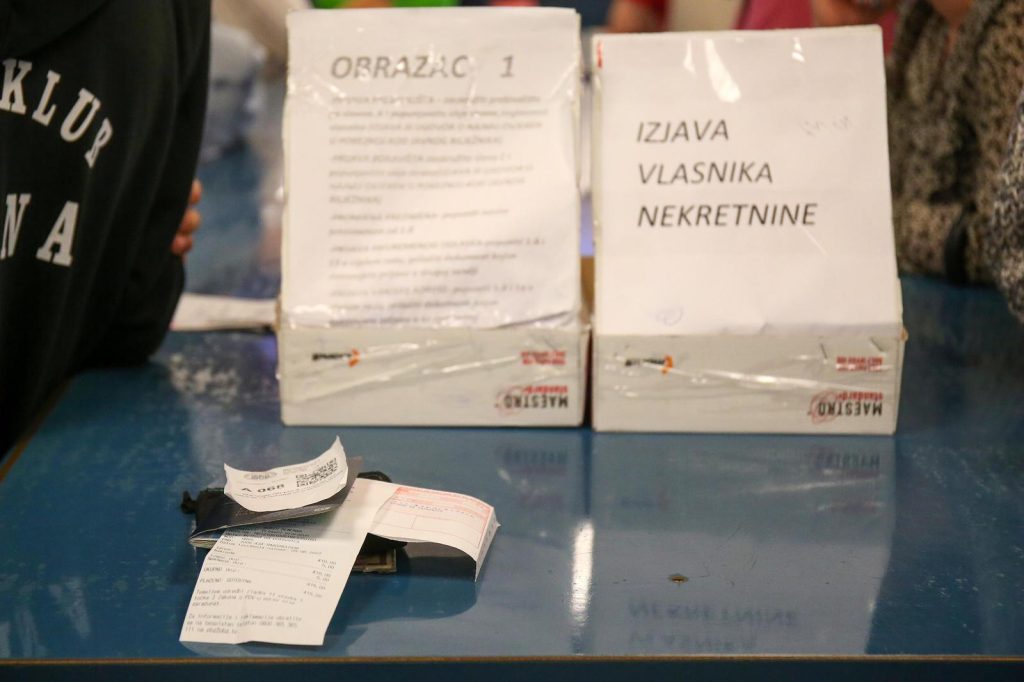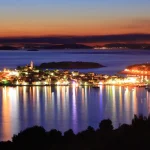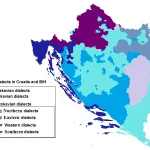One trap you will naturally end up falling into, whether you express it or not, is comparing Croatia to your home country. This is something that is absolutely unavoidable and we all do it. Anyone who tells you that they don’t do it is lying. Perhaps they don’t do it anymore, but they are certainly guilty of having done it in the past. It’s completely natural to compare, no matter how often some ‘woke’ yoga instructing faith healer has told you not to on Instagram. No offence to yoga instructing faith healers at all, but you know the type of person I’m referring to, and it’s time we stop trying to pretend human nature can be controlled, because to some extent – it can’t. Comparing things to other things is part of perfectly normal human cognition, and while it isn’t always helpful, there’s little you can do to stop it. The key is to not let it affect you, and for that you need time.
Croatia shocks in many subtle and sometimes not so subtle ways. If you’re not used to a country so bizarrely obsessed with paperwork, documents, copies of documents and flashes of ID cards at every semi-official turn, this will more than likely be your first surprise. Many (but not all) countries have moved on from this, and Croatia is also progressing and has been since the coronavirus pandemic forced it to. There are now many more things available to obtain from the comfort of your own home and online, but it would be a lie to say that the country isn’t still clinging on to queues, clerks and pieces of paper.
While you might find what should be a very simple task to be an arduous, laborious venture full of unhelpful government officials and clerks, you’re also just as likely to find what should be an arduous, laborious venture easy and with a lot of help along the way. Croatia is as much of a country of balance as it is paradoxes. I can’t count how many situations I’ve had that should have been easy turn into ridiculous wild goose chases, and in the same breath, I also can’t count the amount of difficult problems I’ve had made so much more simple. Life in Croatia is a balancing act of sorts, to say the least.
Here’s a funny example for you; I once had to get a certain tax document. I went to the main tax office in Zagreb and a large, burly security guard told me that they don’t do that here. I insisted on speaking to the woman sitting behind the glass like some sort of museum piece for a second opinion. She, annoyed at me having disturbed her game of Angry Birds (and in fairness she was on a high level), confirmed what the aforementioned large, burly security guard had said. I eventually got the document I needed, although nobody from two institutions who should know, the tax office and the finance ministry, seemed to know who was supposed to give it to me (or even what it was). An argument even broke out between three women in one room at another tax office who couldn’t agree on what the document was and who was supposed to provide this document while I just stood there twiddling my thumbs. Explaining everything in Croatian had zero effect.
You’d think the tax office might be able to give you a pretty run of the mill tax document. More fool me, I suppose.
A few weeks later, I had to go to MUP for something which needed quite the explanation, and I had mentally prepared myself for the waiting, the random children running around in circles in an attempt to cure their terminal case of boredom, the clerks getting irritated at people for forgetting documents and the vending machine which, quite like the infamous McDonald’s ice cream machine, appears eternally out of order.
I entered the building, bypassing the policeman by the door who is paid to stand and do, well, not a lot, taking a number and sitting down. One random circle-running child appeared from behind a pair of jean-clad legs, but I wasn’t made dizzy watching them spin around and around in their boredom for long. Up came my number, I handed over what I had, I was given what I needed, and the clerk barely even looked at me, let alone spoke. I was in and out in ten minutes. No questions (even the ones which should have been) were asked.
I have several such stories. For every bad one, I have a good one. Sometimes two.
I could have let myself get hung up on the whole tax document ordeal and compared it to the UK, where, honestly, not only would you never need to get such a document, but I’m not sure it even exists there. I would be lying if I said that in the throes of my frustration at the time, I didn’t think about how utterly ridiculous this entire quest was, how it was taking up my whole day, how incompetent every person I’d spoken to was, and how this would never happen in Eng… and then I stopped myself. No, that wouldn’t happen, but something else equally as absurd likely could and would.
The administrative bodies in Croatia, even in Zagreb, need a lot of work. Nobody can deny that. There is far too much paperwork, far too many things which require you to show up in person and take time out of your day to do so, and honestly, far, far too many people employed to do next to nothing but enjoy weird little power trips. Think of it like the meme about how many meetings could just be emails, that’s Croatian administrative bodies down to a tee.
For as much as expats complain about how such and such is not like that in their country in a negative sense, there is also such and such which is not like that in their country in a positive sense. Sure, you might be asked to obtain a tax document which not only does the tax office not produce, but apparently nobody has ever heard of. But you might also be pleasantly surprised by a MUP clerk who just wants to get home and who asks you nothing and couldn’t care less about the rules even when you’ve come armed with papers (and copies of said papers) and detailed explanations.
It takes time, a hefty dose of patience and a long exposure to the realities of life in Croatia before you can truly reach Nirvana, which is where you simply accept it for what it is, you pick your battles, and you realise that two realities can co-exist and don’t need to be compared to each other. Dealing with incompetent clerks and difficult-to-navigate rules is a headache wherever you might find yourself, but when you’re enjoying an ice cold cheap beer, looking over the glorious Adriatic to the rugged mountains and watching what Alfred Hitchcock once described as the most beautiful sunset in the entire world, it all seems worth it.
We all live our lives in a kind of process. Things are peeled away gradually, and different ‘levels’ are reached along the way. What we found difficult ten years ago, we likely don’t now. What we spend our time worrying over now, we likely won’t even remember in five years. Getting to know a new country also forces you to get to know yourself. It opens up and exposes parts of you that no other experience could, and forces you to give yourself a long, hard look in the mirror. You might find that you actually don’t particularly like yourself, and while that is a jarring experience, it will open the door to transformations. Nothing builds character like being forced out of your comfort zone, and nothing makes you more self aware than being plunged into unknowns.
Croatia is an onion. It has many layers, some parts of it might appear rotten, and other parts are white and pure. It has taught me many, many things, and while it has well and truly put my pre-Croatia definition of stress to shame, it has also taught me what true appreciation really is. It has taught me that comparison, despite being an unavoidable part of being human, doesn’t have to be given a voice that influences anything, and while there are many things in this country which absolutely do need to be changed, I wouldn’t change that part.
Comparison is definitely the thief of joy, as Theodore Roosevelt once rightly said, but only if you allow it to rob you.
For more on life in Croatia, from tips and tricks about renting a car and using the ferry services to opening a bank account and obtaining citizenship or residence, make sure to check out our dedicated lifestyle section. Our How to Croatia series is published every Wednesday.












